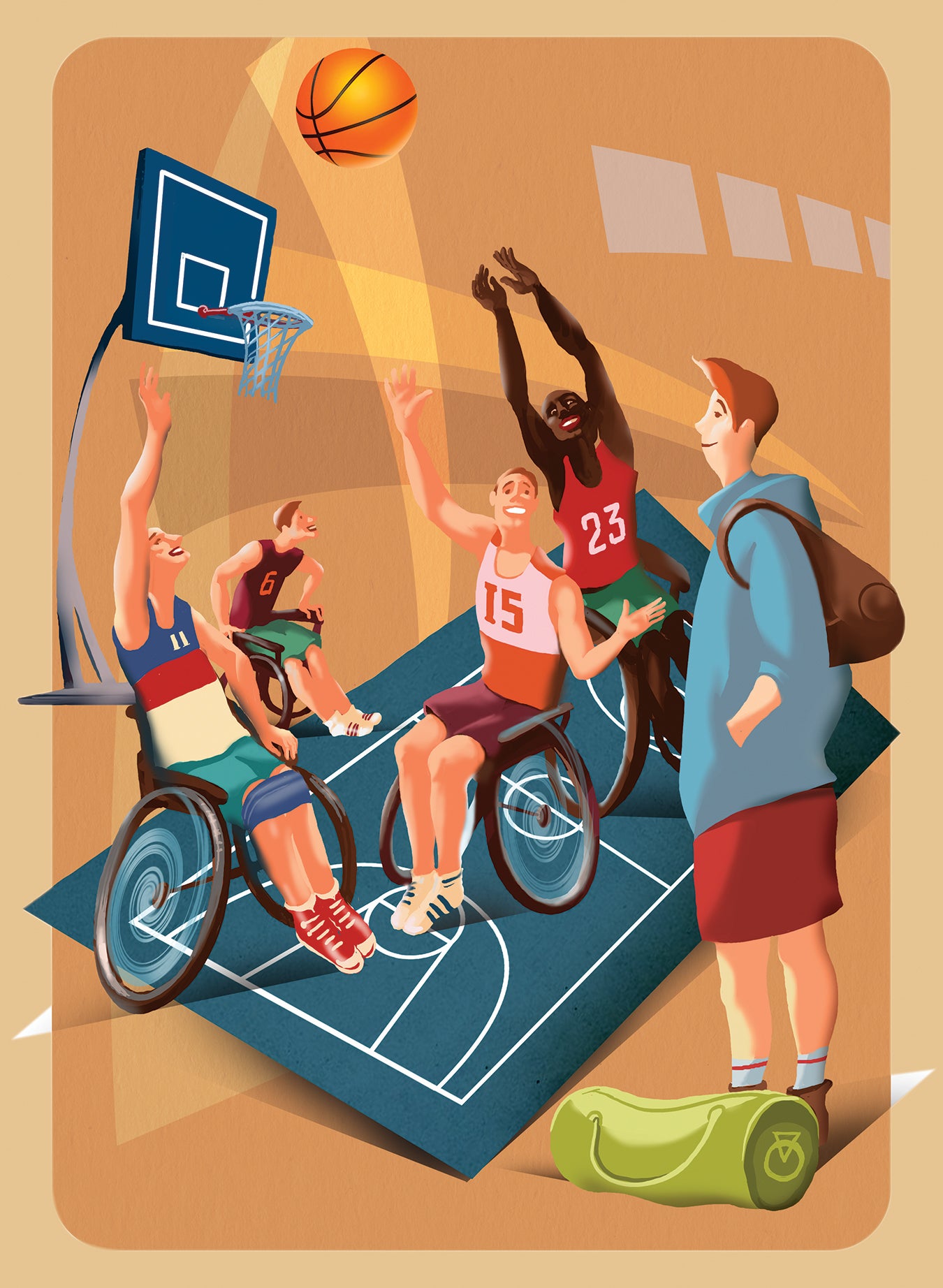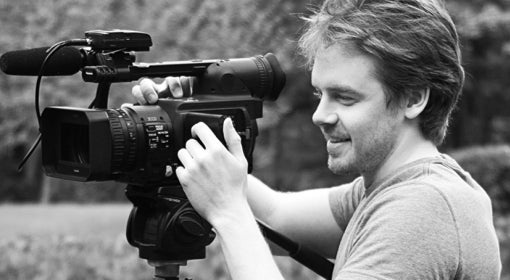 Peyton Miller stands in the doorway, a basketball cradled at his side. The Pitt sophomore came to shoot hoops at Bellefield Hall, but he sees now that the basketball court is already in use—and not in a way he expected.
Peyton Miller stands in the doorway, a basketball cradled at his side. The Pitt sophomore came to shoot hoops at Bellefield Hall, but he sees now that the basketball court is already in use—and not in a way he expected.
Athletes in wheelchairs cruise down the court, passing a ball between them. A number of players appear to be learning how to use the chairs; they practice moving forward, backward, and taking tight turns over the gym’s glossy floor. The activity looks strenuous but fun. Miller is intrigued, but he’s never used a wheelchair before; would he be allowed to join?
Soon, one of the players notices the young man and invites him in, offering a chair for his use. It turns out that many of the athletes in the gym are rookies to the sport, and there’s a mix of people with and without disabilities. Yet, all are welcome at Pitt’s open-gym wheelchair basketball practice. After a little more encouragement, Miller takes to the court.
Pitt’s Students for Disability Advocacy (SDA) group and the Office of Intramurals and Recreation organize the weekly practice sessions, raising awareness of adaptive sports and creating a space where students from a diversity of backgrounds can interact.
“Anybody can play wheelchair basketball,” says SDA president and Rehabilitation Science graduate student Brandon Daveler. “It’s fun, it’s a good workout, you’re part of a team, and you work together.”
Practices are led by members of the Pittsburgh SteelWheelers, a local organization that coordinates wheelchair sports throughout the region. The group loans Pitt athletes the specially designed basketball wheelchairs needed to play the game and coaches newbies on the rules and techniques.
As Miller gets the hang of handling the chair, SteelWheelter Chris Mielo leads the group in warm-up drills before organizing a scrimmage. Two teams of fine form to face-off midcourt. Everyone tries their best to score for their team, but those who use wheelchairs everyday easily outmaneuver the others in the high-energy game. When someone makes a basket, even the opposing team cheers.
A number of students that came to practice tonight are in the School of Health and Rehabilitation Sciences, like Alexa Schreiber, a graduate student studying occupational therapy.
“Occupational therapy is all about helping people who have impairments to do all the things that they want to do and need to do in their everyday life,” Schreiber says after practice, adding, “I have gained a much greater appreciate for these athletes, because this game is not easy.”
When the scrimmage is over, the score is unknown—but no one came here to win, except in the game of life.
This article appeared in the Summer 2017 issue of Pitt Magazine.




